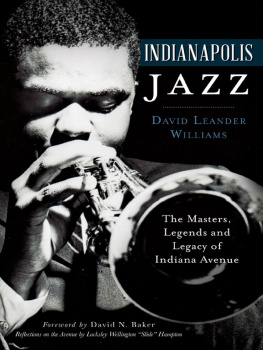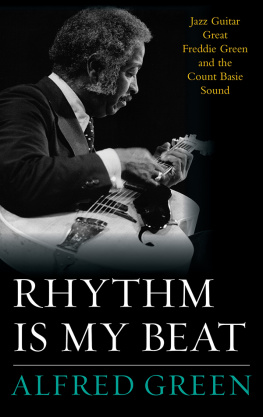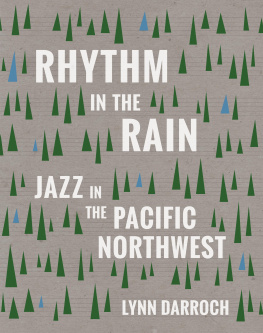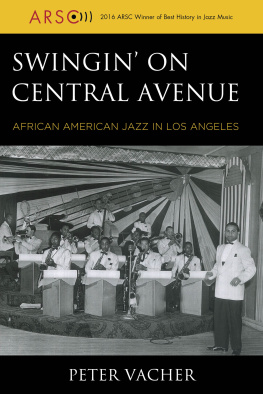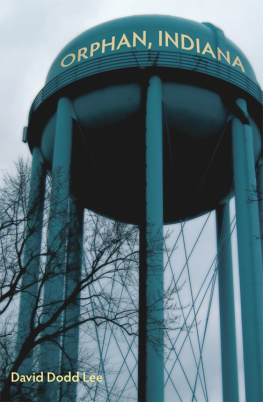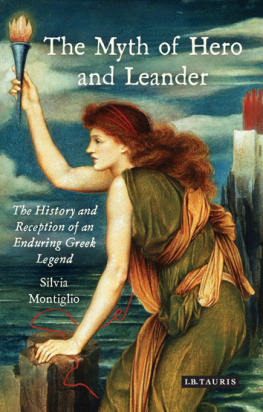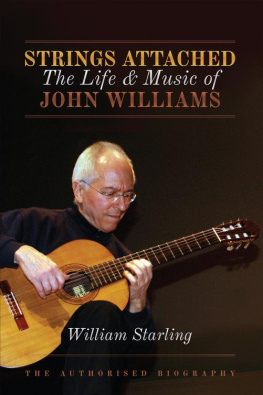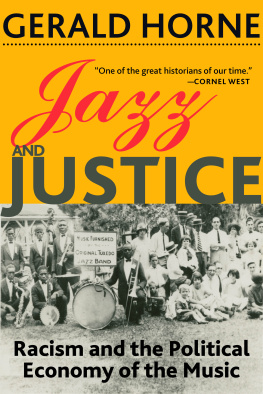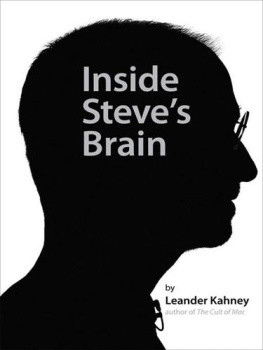
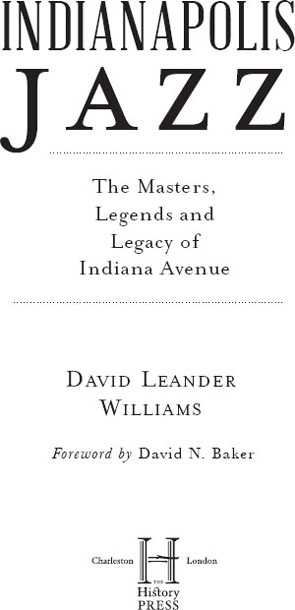
Published by The History Press
Charleston, SC 29403
www.historypress.net
Copyright 2014 by David Leander Williams
All rights reserved
Images courtesy of the author unless otherwise noted.
First published 2014
e-book edition 2014
ISBN 978.1.62584.934.2
Library of Congress Cataloging-in-Publication Data
Williams, David Leander.
Indianapolis jazz : the masters, legends and legacy of indiana avenue / David Leander Williams.
pages cm
Includes bibliographical references and index.
print edition ISBN 978-1-62619-403-8
1. Jazz--Indiana--Indianapolis--History and critisicm. I. Title.
ML3508.8.I3W55 2014
781.650977252--dc23
2013050157
Notice: The information in this book is true and complete to the best of our knowledge. It is offered without guarantee on the part of the author or The History Press. The author and The History Press disclaim all liability in connection with the use of this book.
All rights reserved. No part of this book may be reproduced or transmitted in any form whatsoever without prior written permission from the publisher except in the case of brief quotations embodied in critical articles and reviews.
This book is dedicated to the memory of my parents and relatives:
Lomax Mahone, Emogene Carson-Williams-Mahone, Claude Deon Williams, Jessie Carson, Betty Jean Williams, Jessica Georgianne Williams, Rudd Kenneth Williams and Susie Yvonne Williams.
Love Supreme.
Contents
Foreword
New Orleans. Chicago. New York. Kansas City. These cities are among those immediately recognized as major centers of importance in the history of jazz. Their stories have been well documented and are familiar to aficionados and scholars alike.
But there are a number of other American cities whose musicians, venues and populations have also made significant contributions to the fabric of jazz history and whose stories have yet to be told. One of these cities is Indianapolis, Indiana.
I was born in Indianapolis in 1931, and its story is one I know well. Although segregation was the order of the day at that time, the black community in which I grew up had a long and rich history. I am a proud product of such legendary institutions as Crispus Attucks High Schoolat that time an all-black high school that would come to count among its graduates many notables in the arts, sciences, business, athletics and the militaryEastern Star Baptist Church and the Indianapolis jazz scene, of which Indiana Avenue was the acknowledged center.
Historically, in many cities with a large urban black population, there was an area in which the principal businesses, restaurants, theaters, clubs and other buildings/venues of importance were located. Within this area there was often a street or boulevard of particular prominence. For the black community of Indianapolis, that street was Indiana Avenue.
The story of Indiana Avenue was a book I had thought I might someday write myself. This street was the heart and soul of the Indianapolis I knew, and as a musician who came of age on the Avenue, performed there off and on for many years and knew much of the history and many of the musicians firsthand, I knew it was an extraordinary story that needed to be told and told by someone who knew it intimately.
Indianapolis Jazz: The Masters, Legends and Legacy of Indiana Avenue is that book, and David Williams is the perfect person to have written it.
David is a dear friend and fellow graduate of Crispus Attucks High School. He is exceptionally knowledgeable about many things, including the history of Indiana Avenue and the city of Indianapolis, and especially that of its black community. In this work, he skillfully combines decades of painstaking research with his personal experiences and acquaintance with the subject matter about which he has written. In doing so, he has created an authentic and thoroughly entertaining portrait of this legendary street and the people and places responsible for its greatness.
Not much has been written to date about the rich history of Indianapoliss black community. Indianapolis Jazz: The Masters, Legends and Legacy of Indiana Avenue is significant not only in that it documents an important part of that history but also because it is the work of a black historian writing about the people, places and activities of his own community.
This book is both a valuable contribution to scholarship and a delight to read. Thank you, David Williams, for your passion and perseverance in telling and preserving this historically significant and fascinating story.
DAVID N. BAKER
Chairman Emeritus, Jazz Studies Department, Indiana University Jacobs School of Music, Bloomington, Indiana
Conductor Emeritus, Smithsonian Jazz Masterworks Orchestra, Washington, D.C.
National Endowment for the Arts American Jazz Master
John F. Kennedy Center for the Performing Arts Living Jazz Legend
Reflections on the Avenue
As I think back over my more than seventy years in music, I really feel so fortunate that my journey has been a pleasant one. It certainly has been an awe-inspiring one. I was blessed to have two of the greatest music educators one could ask for in my parents, Clark Hampton and Laura Burford-Hampton. My mother and father instructed and mentored not only me and my siblings in our home but also a host of other aspiring and talented young musicians. I was also blessed to have a classroom in which to learn my trade that challenged me at every step of the way to be the best that I could possibly be and to strive for excellence. That classroom wasnt in some erudite Ivy League edifice on some distant college campus but in the Hampton home, as well as in the jazz clubs and fabled entertainment venues on Indiana Avenue. I learned so much at a young age jamming with the greatest musicians anyone could be fortunate enough to play with. Many of these musicians went on to international acclaim and recognition as jazz greats. I dare not mention any for fear Id omit someone, and besides, the list would be long. They all were great!
Although Ive won two Grammys, been honored by the National Endowment for the Arts with its highest honor (the Jazz Masters Award), been inducted into the Indianapolis Jazz Foundation Hall of Fame and performed all over the world, none of it would have been possible if not for my jazz education on Indiana Avenue.
As a youngster, as I jammed with these tremendous musicians, I sometimes would think that one day theyd all leave this earth and their history would be gone forever. In my heart of hearts, I always hoped that some way, somehow, this great history would be recorded. Now, with this book, written by David Williams, the lives and contributions of those great musicians of Indiana Avenue will live on! Im so happy and thankful to David.
I endorse this book because I want to remember the great music educators and entertainers, like my parents, who labored long and hard and dedicated their lives so that all of my brothers and sisters in the entertainment community would be great people as well as outstanding musicians.
LOCKSLEY WELLINGTON SLIDE HAMPTON
November 7, 2013
Preface
When you get to Naptown, the blues wont last very long, because they have their pleasure and they sure do carry on.
lyrics to Naptown Blues, composed by Leroy Carr, 1929
More than thirty years ago, I contemplated taking on the herculean task of writing the history of Indiana Avenue, and I struggled with my inner spirit, asking the question, Why? Indiana Avenue had long been a ghost of the past, owing to the expansion of Indiana UniversityPurdue University at Indianapolis (IUPUI). The Madam Walker Theatre Center had become a hollow shell with no resemblance to its glorious past, its edifice literally disintegrating. The nightclubs that once proudly offered the best of blues, jazz and rhythm-and-blues music had suddenly fallen silent.
Next page
